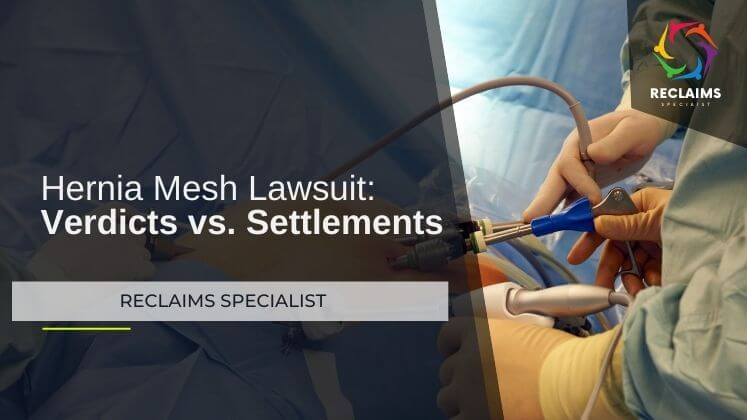Hernias can affect people of all ages and backgrounds, causing discomfort and pain. While hernia repair surgeries are common, the use of hernia mesh has become increasingly prevalent in recent years. In this article, we will delve into the world of hernia mesh repair cases, exploring key statistics, lawsuits, patient perspectives, prevention, and awareness.
Understanding Hernias
Hernias occur when an organ or fatty tissue protrudes through a weak spot or opening in the surrounding muscle or connective tissue. They can develop in various parts of the body, with inguinal hernias (in the groin) and ventral hernias (in the abdominal wall) being the most common types.
The Role of Hernia Mesh
Hernia mesh is a medical device designed to reinforce the weakened tissue and reduce the risk of hernia recurrence. It acts as a supportive barrier, facilitating the healing process after surgery.
Importance of Hernia Mesh Repair
Hernias left untreated can lead to serious complications, such as strangulation or obstruction of the affected organ. Hernia mesh repair plays a vital role in preventing these complications.
Overview of Hernia Mesh Repair Cases
Let’s dive into the numbers and see how hernia mesh repair cases unfold every year.
Key Statistics
Prevalence of Hernias Worldwide
Hernias are a global health concern, affecting millions of people annually. According to the World Health Organization (WHO), over 20 million hernias are diagnosed worldwide each year.
Surgical Approach to Hernia Repair
There are two primary surgical approaches for hernia repair:
Open Hernia Repair
This traditional approach involves making a large incision near the hernia site to manually push the protruding organ or tissue back into place and reinforce the abdominal wall with mesh.
Laparoscopic Hernia Repair
In laparoscopic surgery, small incisions are made, and a camera and specialized instruments are used to repair the hernia. This minimally invasive technique has gained popularity due to shorter recovery times.
The Growing Use of Hernia Mesh
Advantages of Hernia Mesh
Hernia mesh repair offers several advantages, including reduced recurrence rates and shorter hospital stays compared to non-mesh repairs.
Types of Hernia Mesh
There are different types of hernia mesh materials, including synthetic and biologic options, each with its unique properties and applications.
Hernia Mesh Complications
Common Complications
While hernia mesh repair is generally safe, there can be complications such as infection, pain, or mesh migration.
Rare Complications
In some cases, rare complications like mesh erosion or adhesion to nearby organs may occur, necessitating additional surgeries.
Hernia Mesh Lawsuits
Surge in Hernia Mesh Lawsuits
In recent years, there has been a significant increase in hernia mesh-related lawsuits. Patients who experienced complications have sought legal recourse against manufacturers.
Common Grounds for Lawsuits
Lawsuits typically cite issues like defective mesh products, lack of warning about potential risks, and failure to provide adequate post-operative support.
Legal Outcomes and Settlements
Some lawsuits have resulted in substantial settlements, bringing attention to the importance of patient safety and product accountability.
Patient Perspectives
Personal Stories of Hernia Mesh Complications
Understanding the impact of hernia mesh complications on patients is crucial.
Testimonials from Patients
Many individuals have shared their experiences through testimonials, shedding light on the physical and emotional toll of complications.
Impact on Quality of Life
Complications can disrupt daily life, leading to chronic pain, discomfort, and the need for multiple surgeries.
Prevention and Awareness
Steps to Reduce Hernia Mesh Complications
Patients and healthcare providers can take steps to minimize the risk of complications.
Choosing the Right Surgeon
Selecting an experienced surgeon who specializes in hernia repair is essential.
Informed Consent
Patients should be fully informed about the procedure, potential risks, and alternatives before undergoing hernia mesh repair.
Post-Surgery Monitoring
Regular follow-ups with the surgeon can help detect and address complications early.
Raising Awareness about Hernia Mesh Complications
Support groups and online resources provide a platform for patients to share information, seek advice, and raise awareness about hernia mesh complications.
FAQs (Frequently Asked Questions)
- What is a hernia mesh? Hernia mesh is a medical device used in hernia repair surgeries to provide support to weakened tissues and reduce the risk of hernia recurrence.
- How common are hernias worldwide? According to the World Health Organization (WHO), over 20 million hernias are diagnosed worldwide each year.
- What are the common complications of hernia mesh repair? Common complications may include infection, pain, and mesh migration.
- Why have there been an increasing number of hernia mesh lawsuits? The surge in lawsuits is often attributed to issues such as defective mesh products, insufficient warnings, and post-operative complications.
- What steps can patients take to reduce hernia mesh complications? Patients can reduce the risk of complications by selecting experienced surgeons, seeking informed consent, and maintaining regular post-surgery follow-ups
If You or any of your loved one effected by Deffective mesh, contact for Free compensation claim with us.



